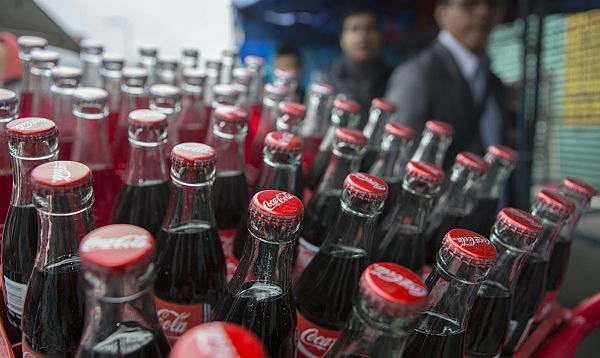Mexico City, Mexico - Mexican President Enrique Peña Nieto has proposed a tax on sugar-sweetened drinks in an effort to curb soaring rates of diabetes and obesity.
Mexicans consume the highest numbers of Coca-Cola beverages in the world, drinking 728 per year (the average among Americans is 403) according to statistics from 2011. Obesity rates in Mexico are now the highest in the world for any country with 100 million or more residents.
Peña Nieto announced the soda tax earlier this month as part of a multifaceted overhaul of the country’s tax system to collect more revenue and widen the country’s social security net. The soda tax is to be imposed on "flavored beverages as well as concentrates, powders, syrups, essences, or flavor extracts." If passed by the legislature, Mexicans will pay an extra peso (7.6 cents) for every liter of soft drinks, sports drinks, or sugary beverage they buy.
France, Finland, Algeria, and Hungary already have a similar tax on sugary drinks. California is considering such a measure for the entire state and some groups in the United Kingdom are saying that a tax on sugary drinks is key to fighting childhood obesity.
Soft-Drink Companies Object to Ban, Say They’re Not the Problem
Creating and getting such initiatives approved and made into law is an uphill battle as New York City mayor Michael Bloomberg discovered when he proposed a ban last year on serving large-sized (larger than 16 ounces) sugary drinks in restaurants. Amid accusations that Bloomberg’s ban was creating a "nanny state," an appellate court struck it down as unconstitutional last July.
Peña Nieto’s proposed soda tax has been drawing its share of detractors. The Mexican Association of Soda Makers charges that it will hurt sugar cane growers and have disproportionately adverse consequences for the poor in a country where 45 percent of 118 million people live in poverty.
Coca-Cola has certainly been none too pleased. "A tax on beverages is ineffective to combat a problem as complex as obesity," Coca-Cola de Mexico said in a statement.
Is the US Food Industry Exporting the Obesity Epidemic?
There are many reasons for rising rates of obesity and diabetes. Soft-drinks are not the sole culprit behind one-third of adults in Mexico being overweight. But the exporting of American fast food and of industrial agricultural practices certainly play a part.
As John Norris writes in Foreign Policy, "it is worth noting that Mexico’s sharp spike in obesity and soda consumption correlates with the 1994 passage of the North American Free Trade Agreement, which opened Mexico to a flood of cheap junk food and soda pop." Between 1996 and 2012, exports of high-fructose corn syrup from the United States to Mexico increased more than 1,200 percent. American fast-food companies have also not exactly been hesitating about expanding in other countries in recent years.
"Perhaps for Mexicans, the biggest problem is living next door to the United States, which means the fast food and super-sized culture has a particularly strong influence," the economist noted in April edition of the Miami Herald about the rise of diabetes in Mexico.
A tax on sugary beverages is far short from "playing up gluttony as a killer" as the Mexican government does with cigarettes, the economist also points out. Indeed, Alejandro Calvillo, head of the consumer watchdog group Consumer Power AC, says that the proposed tax does not go far enough. If collected, it would add up to only about ten percent of the cost of a soda bottle and garner the government some $152 million.
Calvillo argues that a higher soda tax is necessary to be truly beneficial to public health. Given the ever-rising rate of obesity in Mexico’s population, a soda tax is just a start to stop people from drinking themselves to poor health and worse.


